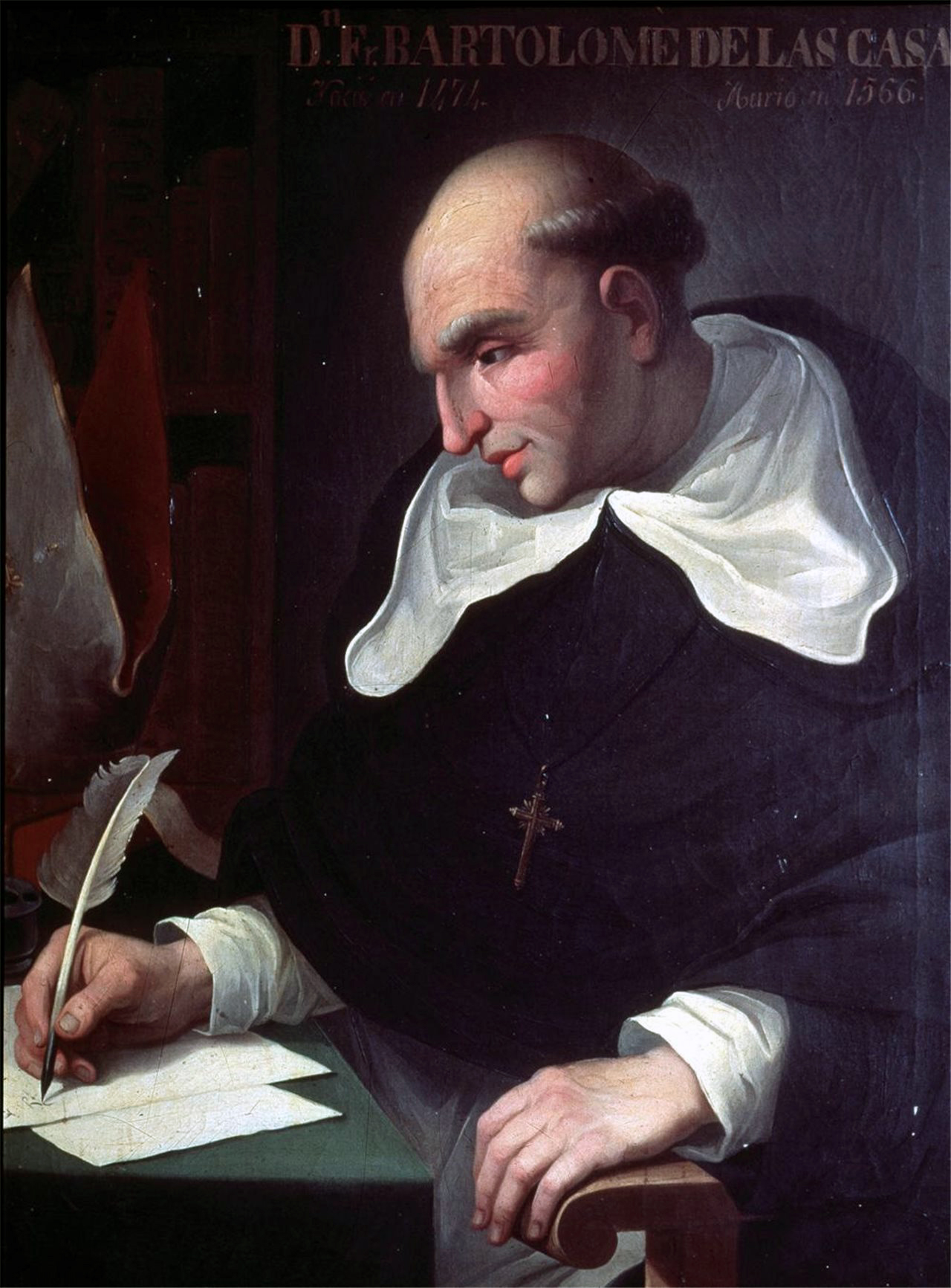Bartolomé de las Casas
 Bartolomé de las Casas, OP ( ; ; 11 November 1484 – 18 July 1566) was a Spanish clergyman, writer, and activist best known for his work as an historian and social reformer. He arrived in Hispaniola as a layman, then became a Dominican friar. He was appointed as the first resident Bishop of Chiapas, and the first officially appointed "Protector of the Indians". His extensive writings, the most famous being ''A Short Account of the Destruction of the Indies'' and ''Historia de Las Indias'', chronicle the first decades of colonization of the Caribbean islands. He described and railed against the atrocities committed by the conquistadores against the Indigenous peoples.
Bartolomé de las Casas, OP ( ; ; 11 November 1484 – 18 July 1566) was a Spanish clergyman, writer, and activist best known for his work as an historian and social reformer. He arrived in Hispaniola as a layman, then became a Dominican friar. He was appointed as the first resident Bishop of Chiapas, and the first officially appointed "Protector of the Indians". His extensive writings, the most famous being ''A Short Account of the Destruction of the Indies'' and ''Historia de Las Indias'', chronicle the first decades of colonization of the Caribbean islands. He described and railed against the atrocities committed by the conquistadores against the Indigenous peoples.Arriving as one of the first Spanish settlers in the Americas, Las Casas initially participated in the colonial economy built on forced Indigenous labor, but eventually felt compelled to oppose the abuses committed by European colonists against the Indigenous population. In 1515 he gave up his Native American laborers and ''encomienda''. He then advocated, before Charles V, on behalf of rights for the natives. In his early writings, he advocated the use of African slaves to replace Indigenous labor. He did so without knowing that the Portuguese were carrying out "brutal and unjust wars in the name of spreading the faith". Later in life, he retracted this position, as he regarded both forms of slavery as equally wrong.
In 1522, Las Casas tried to launch a new kind of peaceful colonialism on the coast of Venezuela, but this venture failed. He then entered the Dominican Order and became a friar, leaving public life for a decade. He traveled to Central America, acting as a missionary among the Maya of Guatemala and participating in debates among colonial churchmen about how best to bring the natives to the Christian faith.
Travelling back to Spain to recruit more missionaries, he continued lobbying for the abolition of the ''encomienda'', gaining an important victory by the passage of the New Laws in 1542. He was appointed Bishop of Chiapas, but served only for a short time before he was forced to return to Spain because of resistance to the New Laws by the ''encomenderos'', and conflicts with Spanish settlers because of his pro-Indian policies and activist religious stance. He served in the Spanish court for the remainder of his life; there he held great influence over Indies-related issues. In 1550, he participated in the Valladolid debate, in which Juan Ginés de Sepúlveda argued that the Indians were less than human, and required Spanish masters to become civilized. Las Casas maintained that they were fully human, and that forcefully subjugating them was unjustifiable.
Las Casas spent 50 years of his life actively fighting slavery and the colonial abuse of Indigenous peoples, especially by trying to convince the Spanish court to adopt a more humane policy of colonization. Although he did not completely succeed in changing Spanish views on colonization, his efforts did result in improvement of the legal status of the natives, and in an increased colonial focus on the ethics of colonialism.
Following his death in 1566, Las Casas was widely venerated as a holy figure, resulting in the opening of his cause for canonization in the Catholic Church. Provided by Wikipedia
